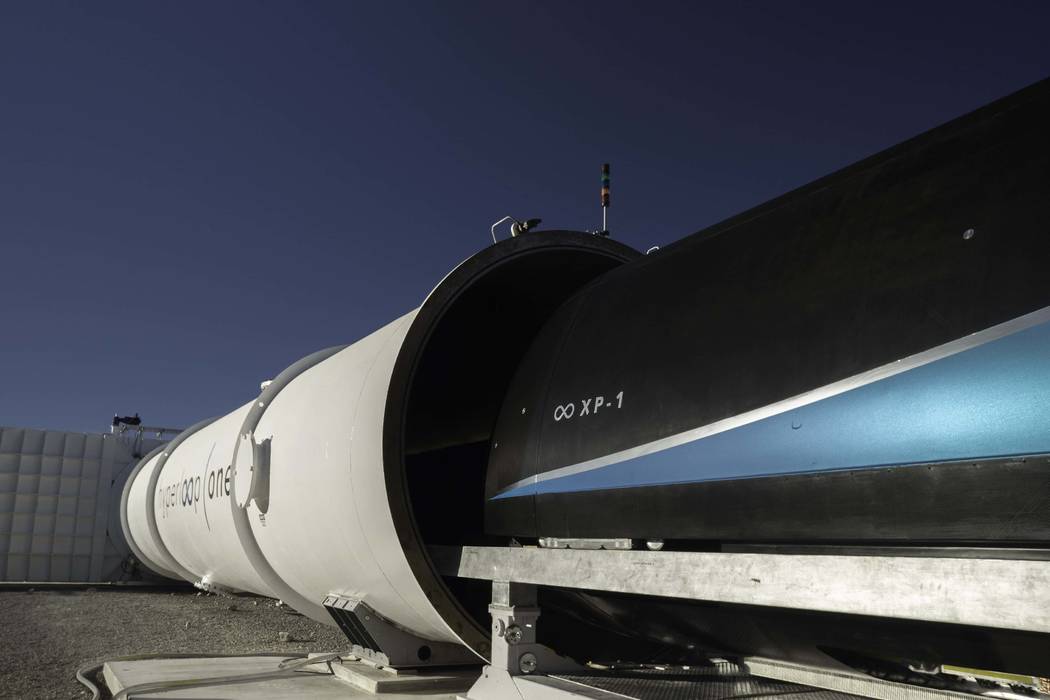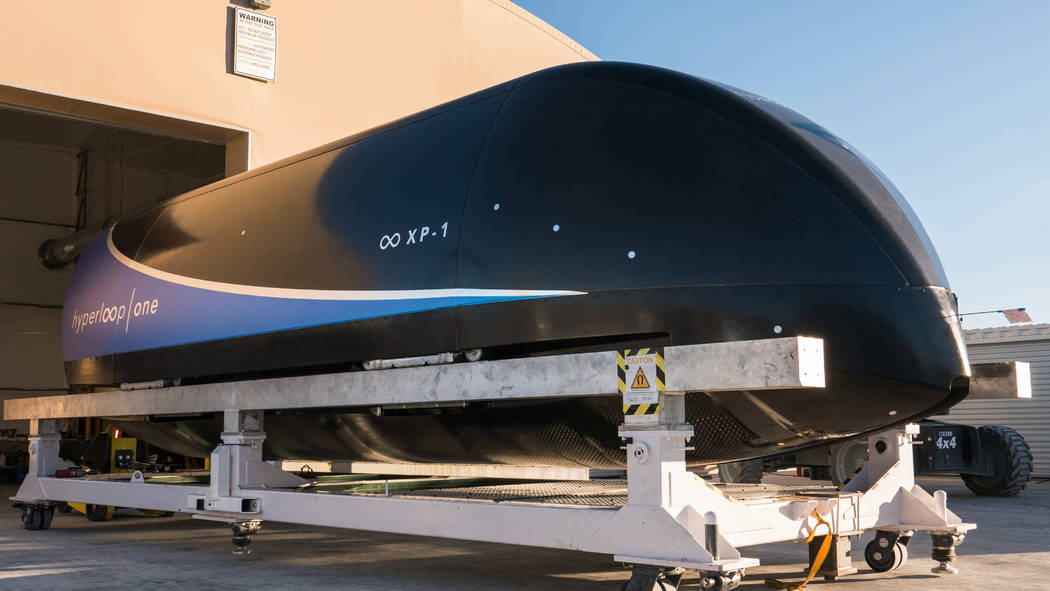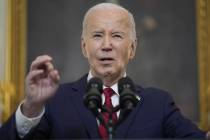Virgin Hyperloop One reaches 240 mph at track near North Las Vegas
The company behind an experimental mode of travel announced a new speed milestone at its test track near North Las Vegas.
Virgin Hyperloop One hit about 240 mph with a travel circuit that magnetically levitates a pod and sends it through a tube, according to a statement Monday.
The company completed the test Friday at its site of about 50 acres inside the Apex Industrial Park. All components worked, including a new airlock. The company has used about 200 engineers, machinists, welders and fabricators to work on the project.
In the summer, the company sent a pod about 192 mph. The pod went 1,433 feet with 3,151 horsepower.
Virgin Hyperloop One has not conducted a public test at its site since May 2016.
The company, formerly Hyperloop One, changed its name following an investment from billionaire Richard Branson, founder of the Virgin conglomerate known for ventures in media, travel and health care.
Branson was named nonexecutive chairman of the company in the Monday statement.
Earlier this month, Virgin Hyperloop One Executive Chairman Shervin Pishevar took a leave of absence from the company and other boards. Several women have said Pishevar sexually harassed or assaulted them. He has denied the accusations.
The company also announced an additional $50 million from investors Caspian Venture Capital and DP World, bringing total financing to $295 million since Hyperloop One’s founding in 2014.
Caspian, controlled by Russian billionaire Ziyavudin Magomedov, has also invested in ride-hailing service Uber.
DP World is based in Dubai and controlled by Sultan Ahmed bin Sulayem.
Virgin Hyperloop One is based in Los Angeles.
While the Las Vegas Valley is home to its test track, the company has said the first working track will not come to Nevada.
Contact Wade Tyler Millward at wmillward@reviewjournal.com or 702-383-4602. Follow @wademillward on Twitter.























